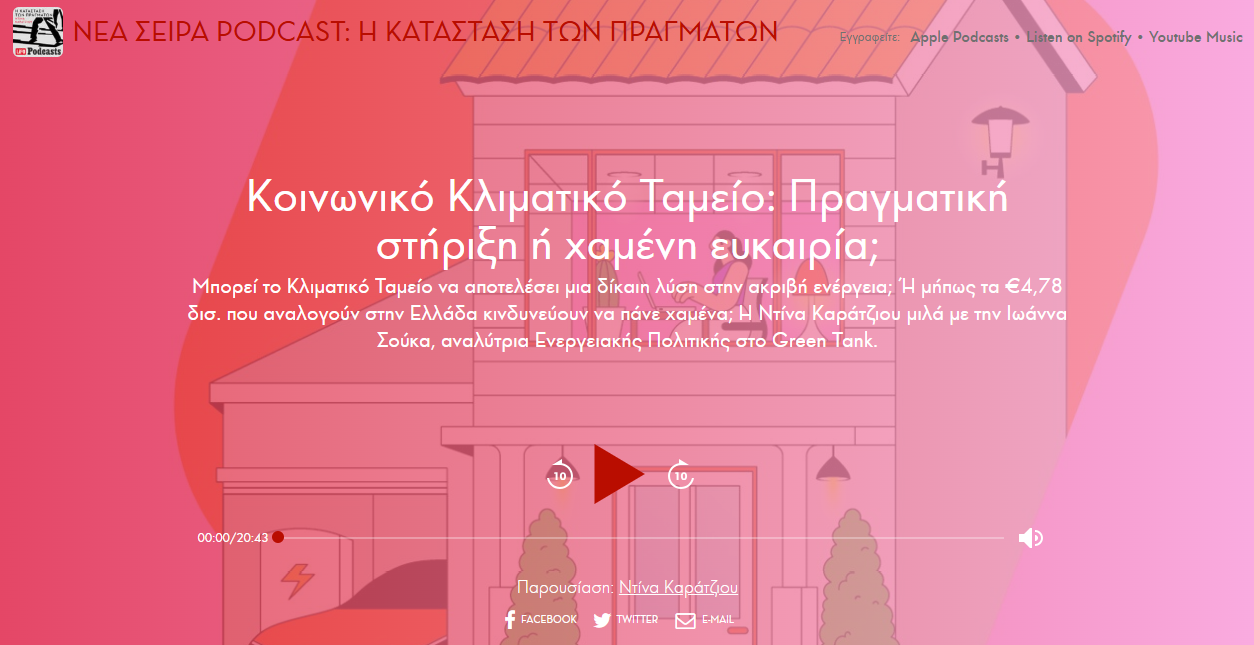In the latest episode of Lifo Podcasts titled “Social Climate Fund: Real support or a missed opportunity?”, Ioanna Souka, energy policy analyst at The Green Tank, talks with Dina Karatzou about the strengths and weaknesses of Greece’s Social Climate Plan. They discuss the social impacts of ETS2 and how Greece can make use of up to €15.5 billion to ensure a just and sustainable energy transition.
Ioanna Souka explains the new Emissions Trading System (ETS2) for the buildings and road transport sectors, highlighting its impact on the most vulnerable households once it enters into force in 2027. She describes ETS2 as essentially a “pollution trading market,” where fuel producers and suppliers pay based on their emissions, introducing a carbon cost that is ultimately passed on to consumers—disproportionately affecting low-income households.
To address this, the EU created the Social Climate Fund (SCF). The strategy for its use is outlined in the Social Climate Plan, which the Greek government submitted for public consultation belatedly, in July 2025, and for a very short period. The Green Tank submitted its comments, highlighting both the potential and the shortcomings of the plan, which, with a budget of €4.78 billion, aims to support society in facing the increased climate and economic pressures brought by ETS2.
However, these funds alone are not sufficient. According to the plan itself, more than 1.5 million households are considered energy vulnerable. Based on The Green Tank’s analysis, there are additional revenues—from ETS2 and part of ETS1 proceeds—which, together with the SCF, could amount to a total of €11.9–15.5 billion, depending on carbon prices. Utilizing all available resources is essential to address the scale of the challenge.
Ioanna Souka emphasizes the importance of targeted measures: direct income support for immediate relief, but above all, structural measures such as energy efficiency upgrades, use of heat pumps and solar panels, support for e-mobility and public transport, and household participation in energy communities, which are key tools for democratization and a just energy transition. The SCF, she notes, can play a decisive role—provided that the funds reach those who need them most.
Listen to the full podcast [in Greek] here (Lifo) and here (YouTube).



